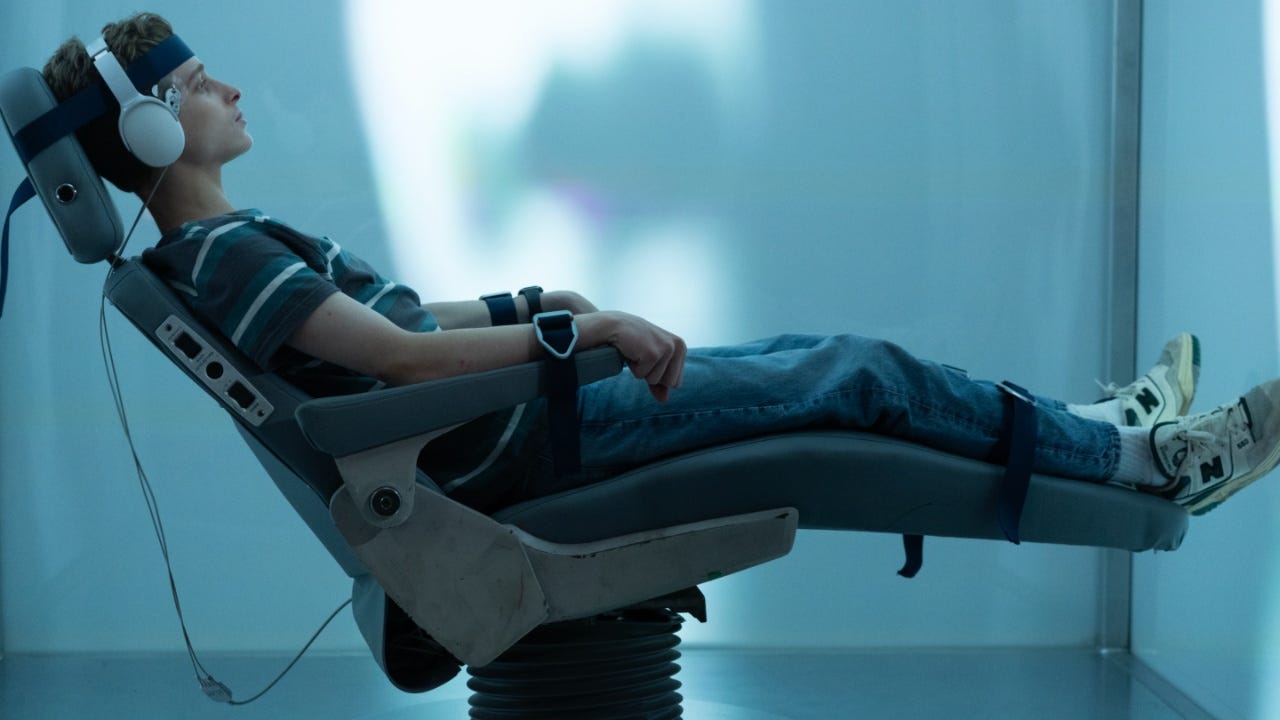
Stephen King is no stranger to unhappy adaptations, and MGM+’s The Institute is merely the latest to lose most of the author’s defining nuance and heart in the move from page to screen. His knack for capturing hope amidst ungodly challenges is nowhere to be found; neither is his way of depicting the peculiar spark that comes from being on the precipice of growing up in a world that cares too little for your feelings. But you can feel the bones there. The man loves underpinning his tales with earnestness, and, of course, has long been interested in supernaturally powerful children like Luke Ellis (Joe Freeman) and his fellow prisoners at the show’s titular facility for unusually gifted kids.
But this translation of King’s 2019 novel wants to quickly manufacture atmosphere rather than allowing it to build naturally. There’s no sense of dread or foreboding in the early episodes; everything seems fairly self-explanatory. There’s not much novelty in a story about kids with powers being enlisted by a shadowy organization, either (even one that purports to be doing its part for the greater good), and the plodding pace of The Institute gives viewers little more to chew on.
Alongside the precocious and perceptive Luke and his peers, we get a sense of higher-up shenanigans through The Institute’s head honcho, Mrs. Sigsby (Mary Louise Parker), and Tim Jamieson (Ben Barnes), a former cop with a heart of gold who finds himself trying to get to the bottom of what exactly is happening up at The Institute. But none of these plotlines ever get to spend enough time with the characters to make their conundrums seem compelling. When watching Tim forge connections with prickly town citizens feels more gripping than watching him unravel a mystery, it’s a problem.
And not just because it’s built on a story by King, a writer so adept at gripping readers with foreboding heft in both style and substance. Instead, it feels like The Institute is consistently dodging the interesting parts of its own story. When Luke arrives, Mrs. Sigsby attempts to buck him up by saying that he and his fellow kids shouldn’t be called “kids” because they’re “working an adult job” and may as well be grown ups. It’s a small detail but a potentially telling one – except The Institute doesn’t invest in the mindset all that much.
That choice becomes a tell for how it handles the reveal of what these kids are being used for. Again: there’s no real surprises as to why they’re being imprisoned and experimented on – you’ve seen one show about kids who can move things with their minds, you’ve seen them all. And the choice to draw out any reveals and then blow past their consequences doesn’t read as confidence in the greater story and its emotional bedrock. The Institute can’t quite make a case for itself on either end. In the beginning, it’s all set up where finer points can’t be discussed in detail; with the final episodes, it’s all action-packed resolution with no time to slow down.
The result is just the most boring version of itself, a show that wants us so badly to care about these kids and their strife it forgets to give them a reason to do so. By the time a character, completely out of nowhere, says he might need “to use an unjustly vilified phrase, a ‘final solution’,” it’s over. Whatever greater world the show is trying to build can’t account for the lack of care for details or characterization that leads to “Nazi sympathizer surprise.”
Perhaps it’s that King’s literary structure doesn’t lend itself well to a backloaded TV adaptation. His books are studied, deliberately building towards a point with things that got peppered in along the way so he can really drive everything home all at once. Sometimes it’s a final straw driving a man insane, and other times it’s a surprise orgy, but his final acts have a knack for flowing out of everything he’s built even as he twists it just one more time. There’s nothing like that in MGM+’s The Institute; it crawls its way through its story just so it can limp across the finish line.